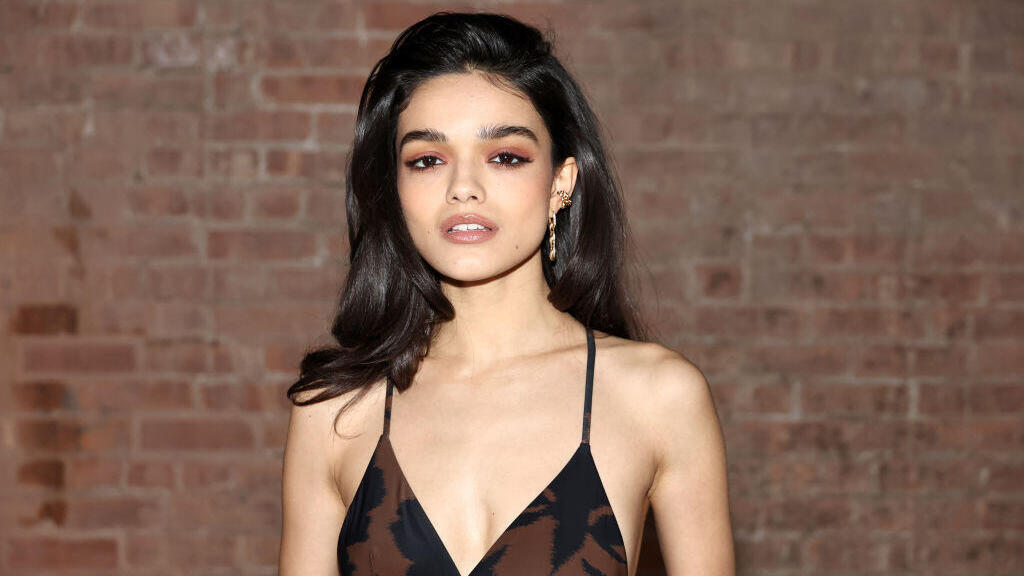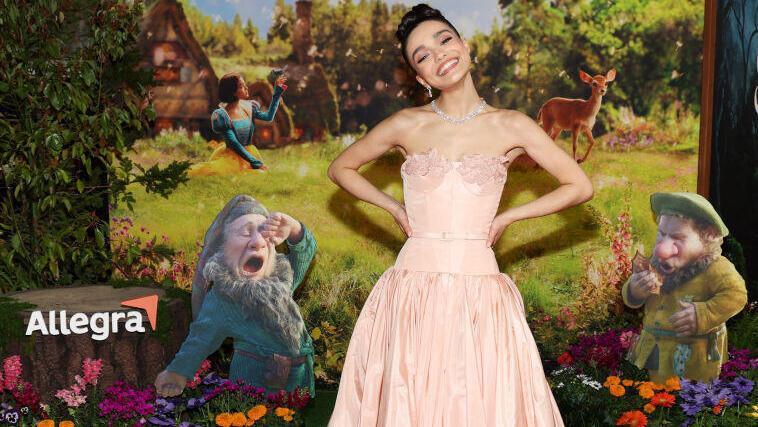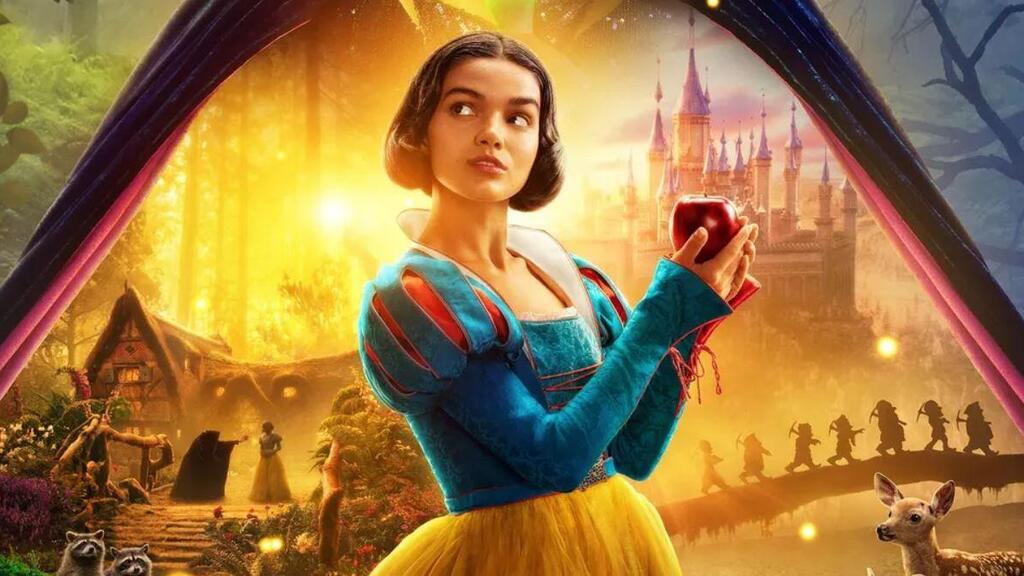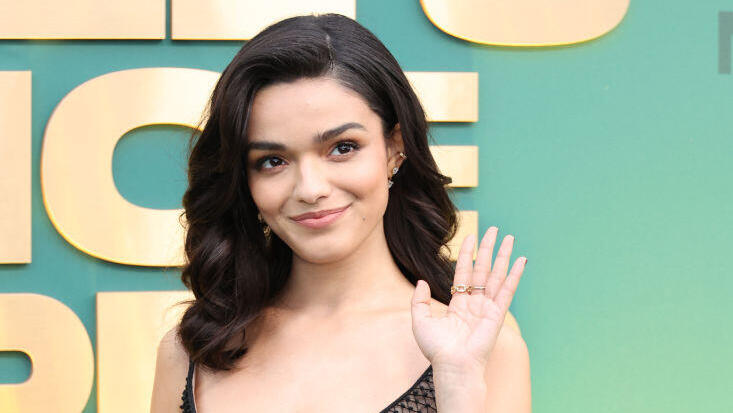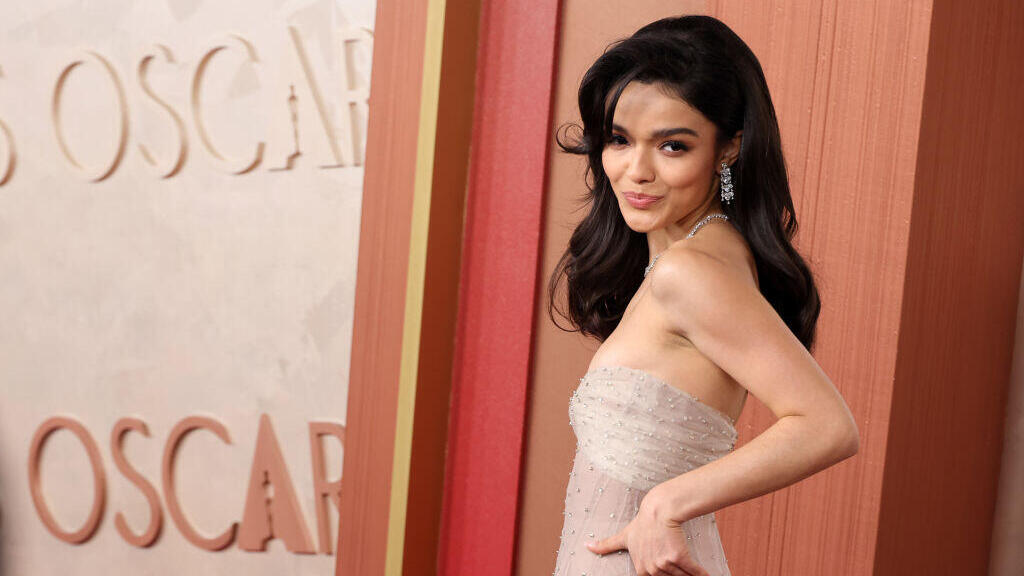At the end of March, Disney released “Snow White,” starring Israeli actress Gal Gadot as the Evil Queen and Rachel Zegler as the iconic princess. While Gadot embraced the role of the villainess, many critics and fans argued Zegler was more fitting for the part — given the divisive public image she's cultivated.
A star on the rise — and under fire
Born on May 3, 2001, in New Jersey to a Colombian mother and a Polish father, Zegler was reportedly named after Friends character Rachel Green. She began her career in musical theater, appearing in school productions like Legally Blonde, The Little Mermaid and Beauty and the Beast.
In 2015, she launched a YouTube channel, and in 2021 she released her debut single “Let Me Try.” That same year, she made her film debut as Maria in Steven Spielberg’s “West Side Story,” earning a Golden Globe and becoming the youngest actress to win in the comedy/musical category.
Two years later, she starred in “The Hunger Games: The Ballad of Songbirds and Snakes,” followed by her casting in “Snow White” — the role that would ignite a firestorm of controversy.
Backlash and botched PR
Despite her rapid rise, Zegler has repeatedly clashed with the public. In 2022, she was initially not invited to the 94th Academy Awards, despite starring in a Best Picture nominee. After public outcry — including support from West Side Story actor Russ Tamblyn — she was ultimately invited and presented an award.
But it was her comments about Snow White that sparked widespread backlash. In interviews, Zegler dismissed the original plot as “outdated” and overly “centered around a love story.” She said the remake would feature a more empowered Snow White: “She’s not dreaming about true love. She’s dreaming about becoming the leader she knows she can be.”
Fans weren’t impressed. Critics accused her of misunderstanding feminism and disrespecting the source material. “Criticizing Disney princesses isn’t feminist,” one commenter wrote. “Not every woman has to be a leader.”
Even David Hand Jr., son of the original Snow White director, weighed in, saying, “There’s no respect for what Disney or my father did. Walt and my dad would be turning in their graves.”
Political firestorms
In November 2024, following U.S. President Donald Trump’s reelection, Zegler posted on Instagram: “Trump supporters will never know peace. This country is deeply diseased, and yes, four more years of hatred are sending us toward a world I don’t want to live in.”
The post drew outrage. Journalist Megyn Kelly called Zegler a “pig,” and a wave of critics vowed to boycott “Snow White.” Zegler eventually walked back her comments: “I want to sincerely apologize for the election post. I let emotions get the best of me. Hate and anger have taken us further from peace. I’m committed to doing better.”
Clash with Gadot and the Israel–Palestine fallout
When the Snow White teaser dropped at Disney’s D23 expo in August, attention quickly turned to its two stars — both targets of online vitriol. Gadot was criticized for her Israeli background and former IDF service, with many threatening to boycott the film.
<< Get the Ynetnews app on your smartphone: Google Play: https://bit.ly/4eJ37pE | Apple App Store: https://bit.ly/3ZL7iNv >>
Zegler faced a different kind of scrutiny: jokes that the Evil Queen was more beautiful than her stepdaughter and criticism that her appearance didn’t match the traditional portrayal of Snow White with “skin as white as snow.” Tensions escalated when Zegler posted a photo captioned “fairest of them all, by the way,” garnering over 400,000 likes and thousands of heated comments.
Rachel Zegler and Gal Gadot
(Video: A.M.P.A.S.© 2025, yes ו- +STING)
Soon after, she posted on X (formerly Twitter): “And always remember, free Palestine.” The post went viral, reaching over five million users and drawing both praise and condemnation. She followed it with a more evasive tweet thanking fans for 120 million trailer views: “I’m in Romeo & Juliet rehearsals, so I’m signing off. Bye for now.”
Days later, Gadot responded with a quote from Martin Luther King Jr.: “Darkness cannot drive out darkness; only light can do that. Hate cannot drive out hate; only love can do that.” She added, “Only love can truly save the world,” signing it with a heart and her name in Hebrew.
Israeli consul in New York, Ofir Akunis, slammed Zegler’s post: “She’s disconnected from reality. Does she know anything about the Iranian threat, Hezbollah, Hamas, radical Islam? It’s ridiculous. She should be ashamed. If she wants to boycott Israel and Jewish culture — that’s outrageous. I call on Americans to support Gal Gadot’s new movie. We’re proud of her.”
Tension on and off screen
By the 97th Academy Awards, the tension between Zegler and Gadot was on full display. Though they presented an award together, they didn’t exchange a glance. At the Snow White premiere in California on March 15, they kept their distance. Two days later, Gadot promoted the film at Disneyland alone—Zegler was nowhere to be seen.
Following Zegler’s Free Palestine post, Gadot began receiving death threats. According to Variety, Disney provided her with personal security. “Zegler didn’t grasp the consequences of her actions,” a production source said.
Variety also reported that Snow White producer Marc Platt flew to New York to ask Zegler to delete the tweet. She refused. “Zegler, whose relationship with the studio had been deteriorating since 2022, stood her ground,” tweeted journalist Tatiana Siegel.
In response, Disney not only funded personal security for Gadot but also hired a “social media guru” to monitor Zegler’s online activity.
Despite mounting criticism, Zegler has become a polarizing symbol in Hollywood — praised by some, condemned by others and at the center of one of the most controversial Disney releases in recent memory.


